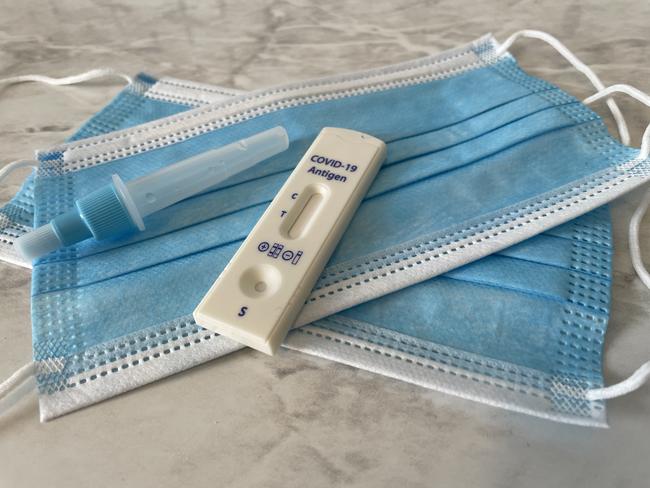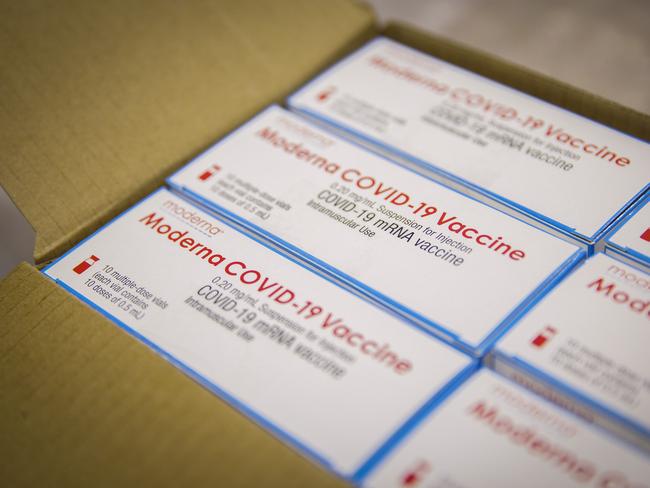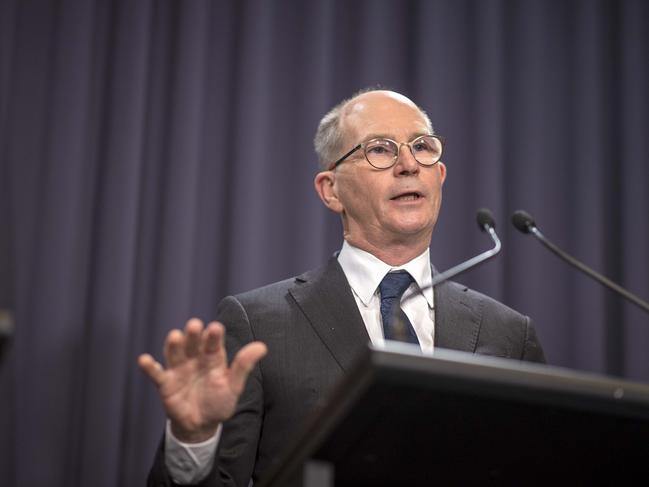‘Not my decision’: Paul Kelly on Christmas lockdown as another Covid wave looms
Chief medical officer Paul Kelly has revealed the likelihood of a Christmas lockdown as the “grandchildren of Omicron” arrive.
Chief medical officer Paul Kelly warns that the “grandchildren of Omicron” are here as Covid cases rise in Australia.
“They certainly are rising, but how it will go in the future is a matter of speculation,” Professor Kelly told Channel 7 on Monday morning.
“These are more transmissible variants but not more severe compared with where we were 12 months ago.”
When asked if he could guarantee Australia would not spend another Christmas in lockdown, no matter what the numbers get to, Professor Kelly answered “not likely”.
“You know, that’s not my decision but I don’t think that that’s likely,” Professor Kelly said.
“My advice at the moment is to be alert but not afraid, I think it would be a good way to look at it.

“Now is a time to consider if you are due for a vaccine, go and get whatever you are eligible for and if you are in the higher risk groups, particularly people over the age of 70, make sure you have a plan to get antiviral treatments if you were to get infected.”
Professor Kelly said Aussies “are in a much better position than last year as there are plenty of tests and so forth”.
“We’ve seen these same variants go to other countries, most recently Singapore. They had a quick, sharp wave of cases but not a lot else and then they’ve moved on,” he said.
“I think that’s probably where we will be. We have very high hybrid immunity at the moment from both previous infection and vaccine, so we are in a good place.”

Professor Kelly also reiterated the protection that vaccines provide against severe Covid.
“When you consider that most of us got our third doses a year ago or in more recent months, so that protection lasts,” he said.
“At the moment we are not considering further doses if you are already up to date, but that’s the thing that ATAGI will continue to look out for over the coming months.
“Antiviral medicine is the thing, if not for everyone but for people over the age of 70.
“If you’re in that age group go and get the antivirals, get them started as quickly as possible.
“For those that are more vulnerable to severe infection, even if you are not over the age of 70, go and get the antivirals.”
While Professor Kelly said there was no increased pressure on hospital systems yet because of Covid, he encouraged people to wear a mask in crowded situations or if they were unwell, test for Covid-19 if they had symptoms and ensure they were up to date with vaccinations.
Covid-19 data
Every jurisdiction now reports on Covid-19 cases weekly rather than daily.

Last week, NSW recorded 24 deaths from Covid-19, an increase from 16 the week before.
There were 12,450 new cases compared with 10,050 cases the week before.
Hospitalisations fell slightly, with 809 patients in hospital compared with 820 the week before.
Intensive care admissions were also down, from 25 to 17.
Victoria recorded 24 deaths last week and 10,226 new cases, an increase from 8537 the previous week.
There are 231 patients in hospital, up from 172 the week before. Seven people are in intensive care.
Queensland reported 14 deaths, down from 18, as well as 4427 new cases following 4447 the week before.
Hospitalisations remain at 105, while the number of people in intensive care has increased to three.
Western Australia reported 6916 new infections, with 142 people in hospital, including three in intensive care, which is down from eight last week.
South Australia recorded 29 deaths and 3797 new cases, with 53 people in hospital, including six in intensive care.
The ACT recorded one death and 910 new cases, with 37 people in hospital, including one in intensive care.
The Northern Territory reported two deaths and 242 new infections, with 15 people in hospital.
Tasmania recorded five deaths and 1307 new cases, with eight patients in hospital.


